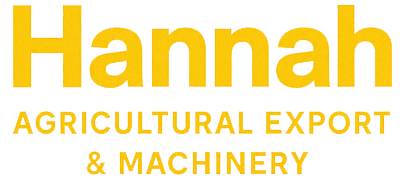In recent years, Africa’s pig farming sector has been under immense pressure due to recurring outbreaks of African Swine Fever (ASF). As of early July 2025, the situation remains complex, with several persistent hotspots. However, governments and international organizations are ramping up support measures to help farmers cope with losses and restore production.

ASF: A Persistent Threat to African Livestock
ASF is a highly contagious viral disease that affects domestic and wild pigs, with a near-100% mortality rate. Though not a threat to human health, the disease causes devastating economic impacts, especially in Africa, where small-scale farming remains the dominant model.
According to the World Organisation for Animal Health (WOAH), between 2022 and early 2025, Africa recorded over 102,000 ASF cases and nearly 92,000 pig losses. The virus remains active in several countries across sub-Saharan Africa, particularly in regions with weak biosecurity and limited disease surveillance.
Key factors contributing to the spread and recurrence of ASF in Africa:
- Unregulated cross-border pig trade.
- Lack of rapid diagnostic and disease reporting systems.
- Wild pigs (warthogs and bushpigs) acting as natural reservoirs.
Support Policies: Progress Amid Challenges
1. Stamping Out and Compensation Programs
Several African countries are launching or expanding compensation-based depopulation programs for ASF-infected pigs. These efforts include:
- Financial compensation to farmers for culling infected or exposed animals.
- Restocking assistance with better biosecurity guidelines.
- Policy models are being adapted from successful cases like the Philippines, where farmers receive approximately USD 90–100 per culled pig.
Still, limited national budgets remain a major barrier to large-scale implementation.
2. Improved Biosecurity and Disease Surveillance
With support from FAO and WOAH, many countries are:
- Introducing zoning and movement controls in outbreak areas.
- Conducting awareness campaigns for farmers, veterinarians, and pig traders.
- Investing in local diagnostic labs and test kits to accelerate outbreak detection.
These measures are essential to avoid uncontrolled spread and to stabilize pig production.
3. Regional and International Collaboration
Africa is now implementing a continental ASF control strategy, developed by the African Union’s Inter-African Bureau for Animal Resources (AU-IBAR) in partnership with FAO and WOAH. Key initiatives include:
- Formation of the Standing Group of Experts on ASF (SGE-ASF Africa) to coordinate action.
- Organizing technical workshops and knowledge exchange among affected countries.
- Promoting a long-term “One Health” approach, linking animal health, human health, and the environment.
Conclusion: A Long Road Ahead
ASF is more than just a veterinary issue—it is a major economic and social challenge for millions of African farmers whose livelihoods depend on pigs.
Nonetheless, the strong involvement of African governments, combined with global funding and technical support, is creating a more hopeful outlook. Sustaining farmer support policies, strengthening disease surveillance, and deepening regional cooperation will be critical to controlling ASF and building a resilient, sustainable pig farming sector in Africa.
📞 CONTACT HANNAH – YOUR TRUSTED PARTNER FROM VIETNAM
Whether you are a contractor, dealer, or NGO working on rural development, Hannah concrete mixers offer the right balance of quality, affordability, and rugged performance.
🌍 Made in Vietnam – Ready for Africa.
📱 WhatsApp / Hotline: +84 919108349
✉️ Email: hannahsaigon96@gmail.com
🔗 Website: www.hannah-trading.com

